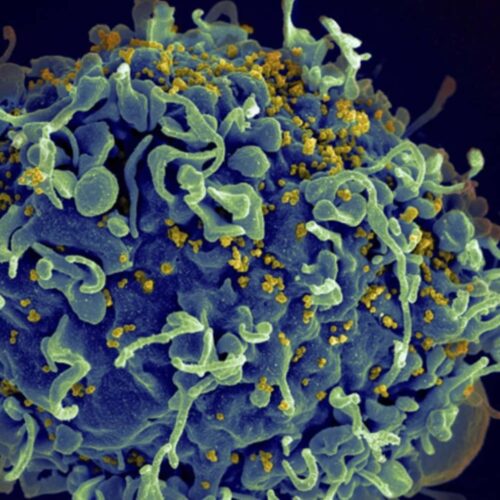Animal free affinity reagents for complex cell and gene therapy processes.
With over 3000 cell and gene therapies in development, there is greater demand for reagents and processes to manufacture such treatments. Cost remains a significant challenge which reduces adoption of potential therapies with treatments costing as much as $2.0M.
There is significant scope to improve the efficiency and cost basis of key industrial processes, such as viral particle production. Current processes lack specificity and efficiency. Historically the use of antibodies has been prohibited partly due to cost and partly because they are not chemically defined, animal component free reagents. Synthetic affinity reagents offer a fresh approach to downstream processing for cell and gene therapy developers

NHS
First baby receives life-saving gene therapy on NHS

World Health Organization
First case of HIV cure in a woman after stem cell transplantation
Driving efficient cell and gene therapy processes
MIP Discovery is supporting the industrialization of cell and gene therapy processes with novel affinity ligands.
Enable continuous monitoring with reusable affinity reagents
The affinity of nanoMIPs can be controlled during the synthesis process, which means they can be designed to be reusable – an ideal solution for closed loop systems and continuous monitoring.
Bioprocessing grade chromatography at scale
nanoMIPs are chemically defined/manufactured and are animal component free, reducing contamination risks associated with cell culture derived reagents such as antibodies. Furthermore nanoMIPs can be produced much more rapidly at scale than antibodies, making them more cost effective and easy to adapt to full scale bioprocessing.
Enable full sterilization without impacting functionality
MIPs are very robust in extreme conditions including temperature and pH and can undergo sterilization procedures without impacting functionality and allowing re-use.
Custom development to your target of choice
If you are looking for a specific affinity reagent, MIP Discovery’s custom development service provides you with a personalised project, delivering a prototype material, and technical support to meet your individual needs and end application.
In-silico molecular modelling to assess the target and generate a template for imprinting.
Selection of the building blocks (monomers) and lab scale polymer synthesis to identify the lead candidate nanoMIP(s).
Analytical program to assess the nanoMIP(s) characteristics and deliver a prototype material.

